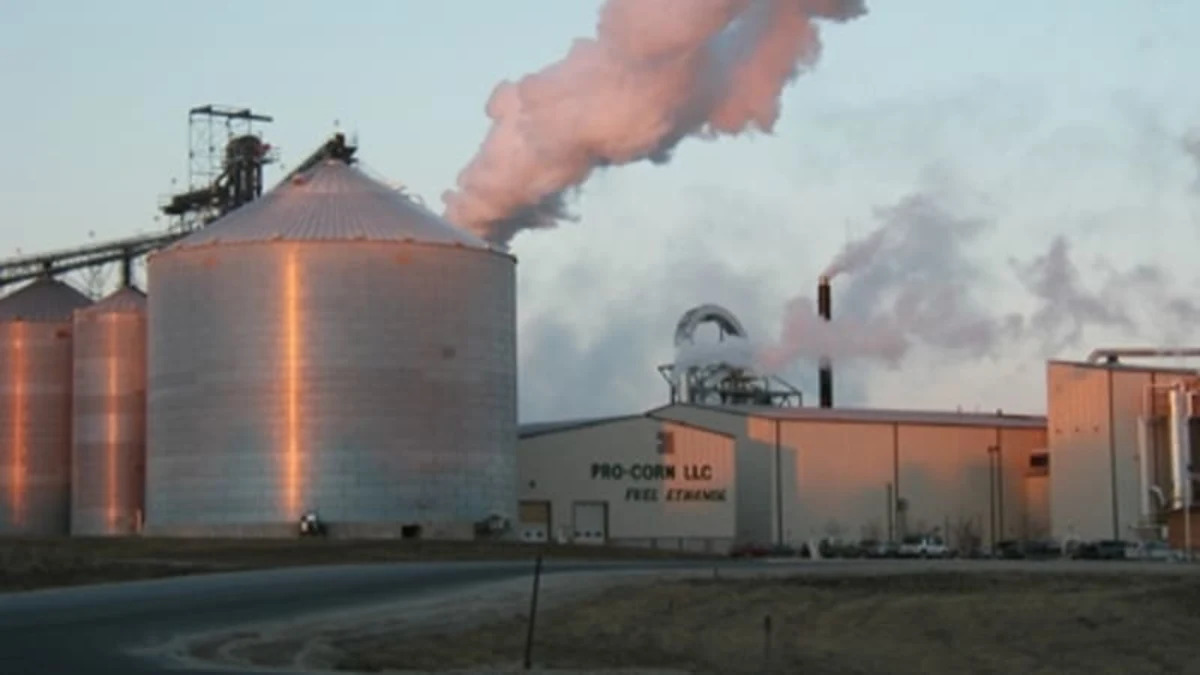This Chicago Tribune article almost slipped through the cracks, but thankfully Plenty Magazine caught it for the rest of the green blogosphere. The article reports that the Environmental Protection Agency will be relaxing pollution rules for new ethanol production plants by changing the way those plants are permitted to operate under the Clean Air Act.
Under existing rules, ethanol plants are considered major sources of air pollution if they emit more than 100 tons of toxic chemicals per year. It this is the case, they are subject to an intensive permit process as well as being forced to install pollution equipment that would eliminate up to 95 percent of their emissions. After the proposed changes take effect, new ethanol plants will not be subject to the stringent federal requirements unless they emit more than 250 tons of pollution per year. Michael Hawthorne, the author's article, adds that most new refineries are expected to emit just below the 250 ton limit. As a result, a plant that emits 200 tons of pollution per year could currently be required to reduce its emissions to 10 tons, while the proposed rule changes would require little or nothing be done by the polluting plant.
Some environmental groups believe that one of the primary motives behind the rule change is to allow a switch to coal for ethanol production. Coal is cheaper than the natural gas that is commonly used in ethanol production but more polluting.
Ethanol gets a lot of political play as its proponents promise to wean the red, white and blue off foreign oil. Whether or not it's a green or sustainable alternative is still up for debate as far as I can tell. It certainly doesn't help that the Bush administration is quietly pushing rule changes and dirtying our discourse.
[Source: Chicago Tribune via Plenty Magazine]
Under existing rules, ethanol plants are considered major sources of air pollution if they emit more than 100 tons of toxic chemicals per year. It this is the case, they are subject to an intensive permit process as well as being forced to install pollution equipment that would eliminate up to 95 percent of their emissions. After the proposed changes take effect, new ethanol plants will not be subject to the stringent federal requirements unless they emit more than 250 tons of pollution per year. Michael Hawthorne, the author's article, adds that most new refineries are expected to emit just below the 250 ton limit. As a result, a plant that emits 200 tons of pollution per year could currently be required to reduce its emissions to 10 tons, while the proposed rule changes would require little or nothing be done by the polluting plant.
Some environmental groups believe that one of the primary motives behind the rule change is to allow a switch to coal for ethanol production. Coal is cheaper than the natural gas that is commonly used in ethanol production but more polluting.
Ethanol gets a lot of political play as its proponents promise to wean the red, white and blue off foreign oil. Whether or not it's a green or sustainable alternative is still up for debate as far as I can tell. It certainly doesn't help that the Bush administration is quietly pushing rule changes and dirtying our discourse.
[Source: Chicago Tribune via Plenty Magazine]


Sign in to post
Please sign in to leave a comment.
Continue